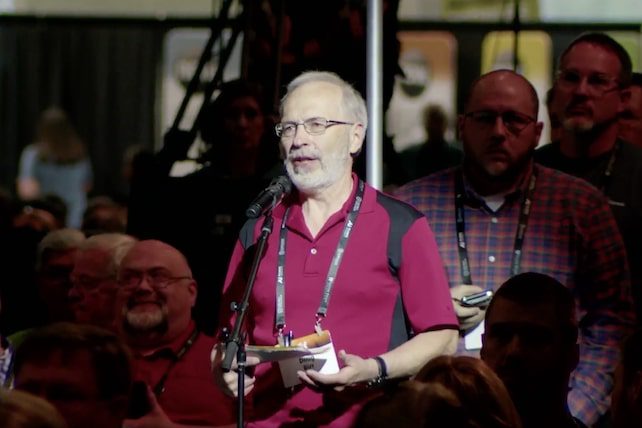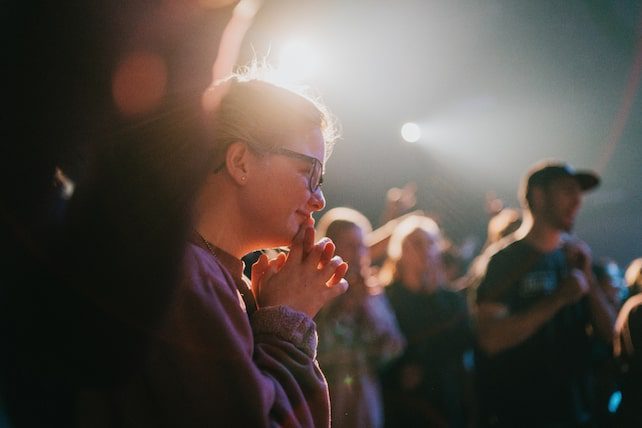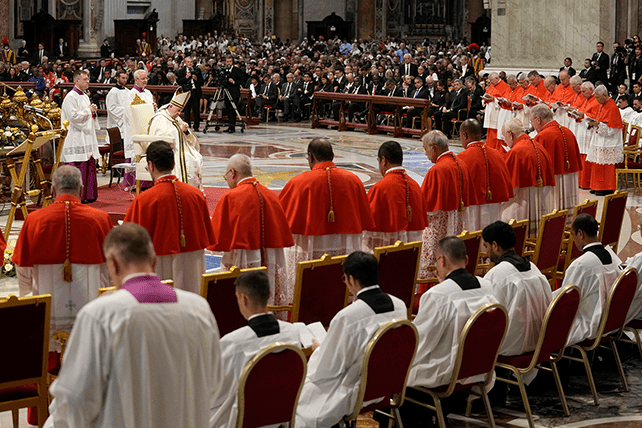Former supermodel Kathy Ireland was honored for her pro-life advocacy at the 2023 Live Action Gala on Saturday, Sept. 23. The Christian entrepreneur told attendees that churches need to “wake up.”
“As a young adult, I identified as a pro-choice Christian,” Ireland said at the fourth annual gala held by the pro-life non-profit Live Action. “It just shows you the state of our nation. How does that happen?”
RELATED: Life Is the ‘First Human Right’—Lila Rose Defends the Pro-Life Position on ‘Dr. Phil’
Kathy Ireland: ‘Every Life Has Value’
In addition to being a former fashion model and pro-life activist, Kathy Ireland, 60, is a philanthropist, author, and businesswoman. She has appeared on the cover of “Sports Illustrated,” “Vogue,” “Harper’s Bazaar,” and “Forbes,” and was able to transition from modeling to being a successful entrepreneur.
Ireland has been outspoken about female body image, telling Larry King in 2009 that it is more important for women to focus on their health than how much they weigh. “I think there is such an obsession with appearance,” she said. “I intentionally built a business that has absolutely nothing to do with my appearance.”
At the time, Ireland shared she had gained a pound a year for the past 25 years. “With my weight gain, people wanted to know, ‘Well, when is she going to squeeze back into a bikini?’” she said. “No. That is not what it’s about. But what people weren’t asking me [was], ‘What’s the triglyceride level? What is the C reactive protein?’”
In a December 2022 interview with CBN, Ireland said that she became a Christian at age 18 while modeling in Paris, an experience that “sounds a lot more glamorous than it was.”
“It was out of boredom, loneliness, and jet lag that I picked up a Bible my mom had packed in my suitcase,” said Ireland. “As I started reading, I was just blown away. Jesus was nothing like I thought. He wasn’t condemning. He was loving and leading. As an 18-year-old, I thought, ‘He’s really cool!’ I became a Christian. He became my best friend.”
Ireland told CBN that becoming a champion of the pro-life cause was initially not “something I wanted to do. Even though I became a Christian at age 18, I was pro-choice. As a woman who always has and will fight for women’s rights, it made sense to me.”





 In our fast-paced and often stressful world, the importance of mental health care cannot be overstated. Mental health issues affect millions of individuals and their families, leading to a growing need for accessible and effective support systems. Counselors and churches play distinct but complementary roles in providing mental health care within communities. It is essential to understand that these two entities are not in competition but rather should collaborate to ensure the well-being of their congregations and communities.
In our fast-paced and often stressful world, the importance of mental health care cannot be overstated. Mental health issues affect millions of individuals and their families, leading to a growing need for accessible and effective support systems. Counselors and churches play distinct but complementary roles in providing mental health care within communities. It is essential to understand that these two entities are not in competition but rather should collaborate to ensure the well-being of their congregations and communities.











 Let’s talk about self-control. It’s not always easy to stay cool, calm, and collected, especially when we’re in the midst of challenging situations, high-capacity
Let’s talk about self-control. It’s not always easy to stay cool, calm, and collected, especially when we’re in the midst of challenging situations, high-capacity 














